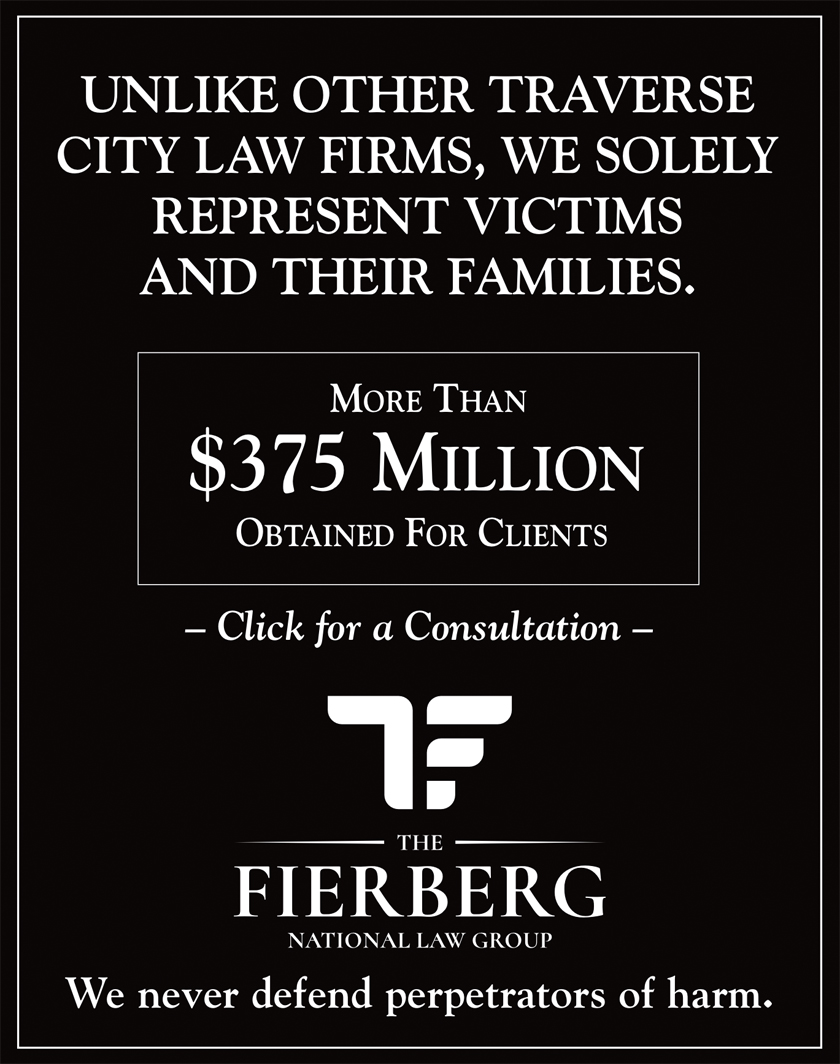
Closed-Door Session Back on Agenda
By Beth Milligan | Nov. 11, 2024
A motion to go into closed session to discuss an active lawsuit against the City of Traverse City – which generated extensive debate among city commissioners in October over whether to discuss the case publicly or privately – is back on the agenda tonight (Monday).
City commissioners lacked the five votes needed at their October 21 meeting to go into closed session to discuss a confidential memo from City Attorney Lauren Trible-Laucht about a federal lawsuit filed by 326 Land Company. That company, which is developing the Peninsula Place project on State Street next to the Park Place Hotel, is challenging the requirement that any new building over 60 feet tall in the city must go to voters for approval. The city reached a settlement agreement with 326 Land Company in 2022 that would’ve allowed the project to move forward, but U.S. District Judge Paul Maloney rejected that agreement, saying he was concerned about possible “collusion” between the city and developer and was not persuaded the settlement was “fair, reasonable, adequate, and in the best interest of the public.”
A stop-work order was issued against the project and also legally challenged, though 326 Land Company later submitted revised plans to the city and received a new permit. Trible-Laucht said the city filed motions in the case a year ago that were heard by Maloney, but the city has “yet to have an answer from the judge on those motions.” She added that such an extended wait “is very uncommon, but the judge has his own timeline and nobody can tell a judge what to do. So all we can do is wait to hear from the judge.” In the meantime, 326 Land Company has filed a demand for monetary damages – the issue Trible-Laucht wants to discuss in closed session with commissioners.
“This case is ongoing, and there are monetary damages in play,” she said at the October meeting. “For the protection of the city and the taxpayers, it would be my recommendation to discuss it in closed session. There’s a saying among city attorneys: ‘If you want to discuss ongoing litigation in open session, bring your open checkbook.’” Trible-Laucht explained that the Open Meetings Act allows for closed sessions to discuss these very issues, including attorney-client communications and trial and settlement strategy. In a lawsuit, she pointed out, “you wouldn’t sit in public or with the opposing counsel and the plaintiff...and talk about what your strategy was in front of them.” The city has the same rights as a private defendant to confer with counsel behind closed doors, she said.
While most commissioners agreed and said they understood the need for closed session, two – Commissioners Heather Shaw and Jackie Anderson – were opposed. Shaw said she disagreed that discussing the case openly would have a “detrimental financial effect” on the city. She worried that going behind closed doors would be “feeding into this suggestion...that there was potential collusion between the parties.” Shaw concluded: “I just feel like we could talk about this in open session...I don’t see why we can’t discuss what the new demands are.”
Anderson asked Trible-Laucht that if not now, when would be the “right time” to discuss the case openly so the public could “understand what it is that we’re deliberating about.” Trible-Laucht said that depends upon the progress of case, pointing out that any actions taken by the city commission in the case must still occur in public.
“At this juncture, we are very much in active litigation still. As the case progresses, there will be further points when (open discussion) would be more appropriate,” Trible-Laucht said. She added: “You’re the ones elected to represent the city residents and the best interest of the city, and its financial position, and its position in litigation. That’s what we’re here to do.”
Mayor Amy Shamroe noted that going into closed session to discuss litigation is common practice and something the commission has done “many, many times over the years on many, many issues.” Shamroe said that deliberating in public seemed in fact to her like colluding with the opposing party, because the city would be openly giving away its strategy. Doing so could cost taxpayers in the long run, Shamroe said, something commissioners “really need to keep in mind.”
While Shaw said she understood the “importance of a closed session” generally, she still felt “this particular case” could be discussed openly. Shaw said she made that determination after consulting ChatGPT, an artificial intelligence chatbot. “It’s an amazing resource for legal opinions,” she said. “I don’t think that what we would be discussing in private chambers is worth taking it out of the public realm. That’s my ChatGPT opinion.”
That comment received pushback from both commissioners and staff. Shamroe noted that some attorneys have faced significant disciplinary action for using ChatGPT, which has generated fictitious case citations. Shamroe tells The Ticker: “Our attorney is a very well-respected municipal attorney and the head of the Michigan Association of Municipal Attorneys. We should be listening to her advice and not ChatGPT. It's troubling that some are listening to the advice of AI over our professional counsel.”
Trible-Laucht says she believes the ChatGPT issue “contributed to some confusion” at the October meeting. Shaw defended her research at the meeting, saying she had to “look for my resources where I can find them.” Shamroe responded: “That’s why we have an attorney.”
With Commissioner Mi Stanley absent at the October meeting, Shaw’s and Anderson’s opposition meant the motion to go into closed session failed in a 4-2 vote. However, all commissioners are expected to be present at tonight’s meeting, which could provide the five notes needed to discuss the case in private. A second agenda item to discuss an intergovernmental agreement is also expected to go into closed session. Trible-Laucht says she doesn’t expect commissioners to take any action tonight on either item – which would need to occur in public – but notes the intergovernmental agreement could come back for public action at another meeting soon.
NOTE: This story was updated to note that while a stop-work order was originally issued against the project, 326 Land Company later submitted revised plans and received a new permit.
Comment






